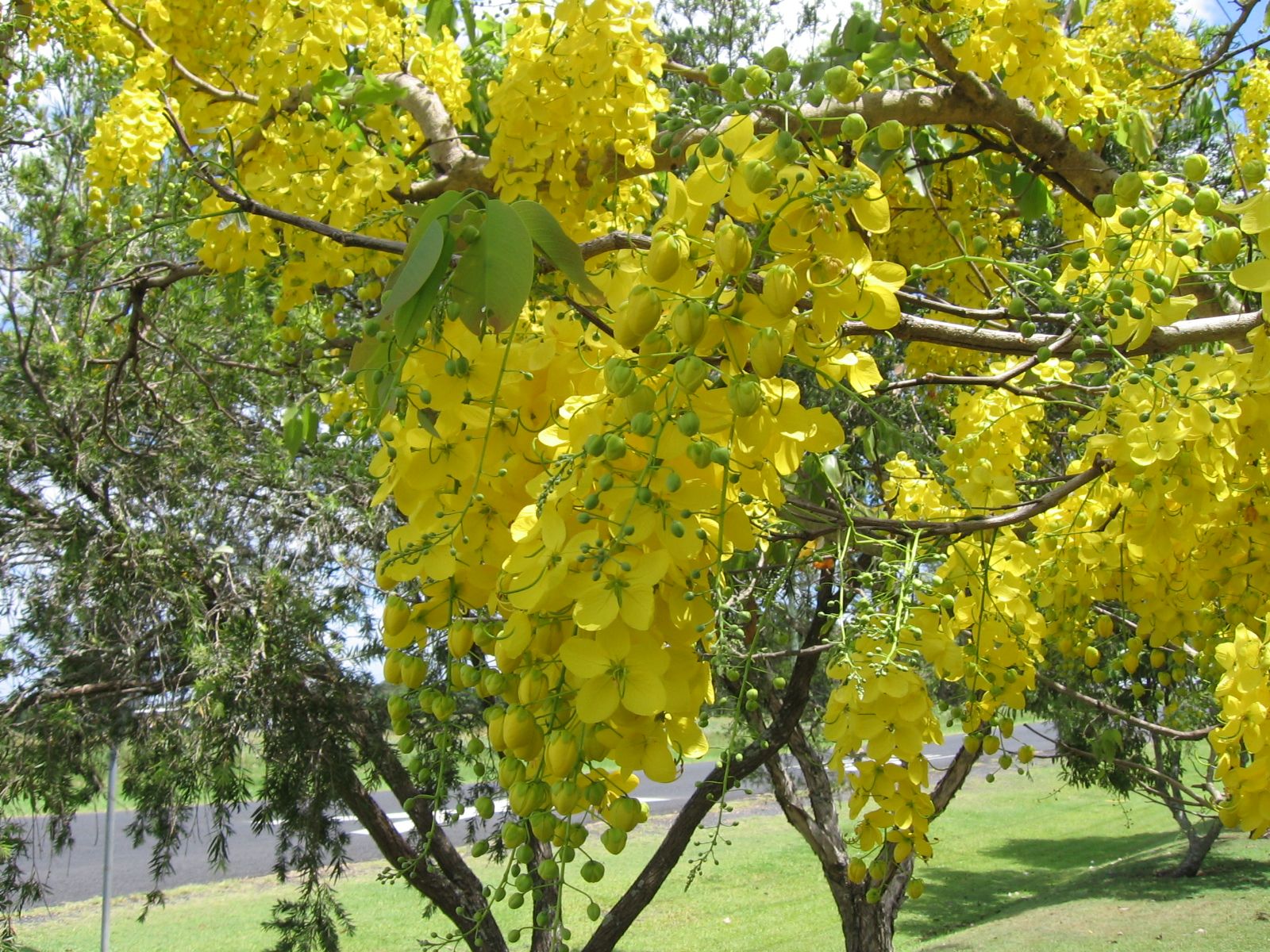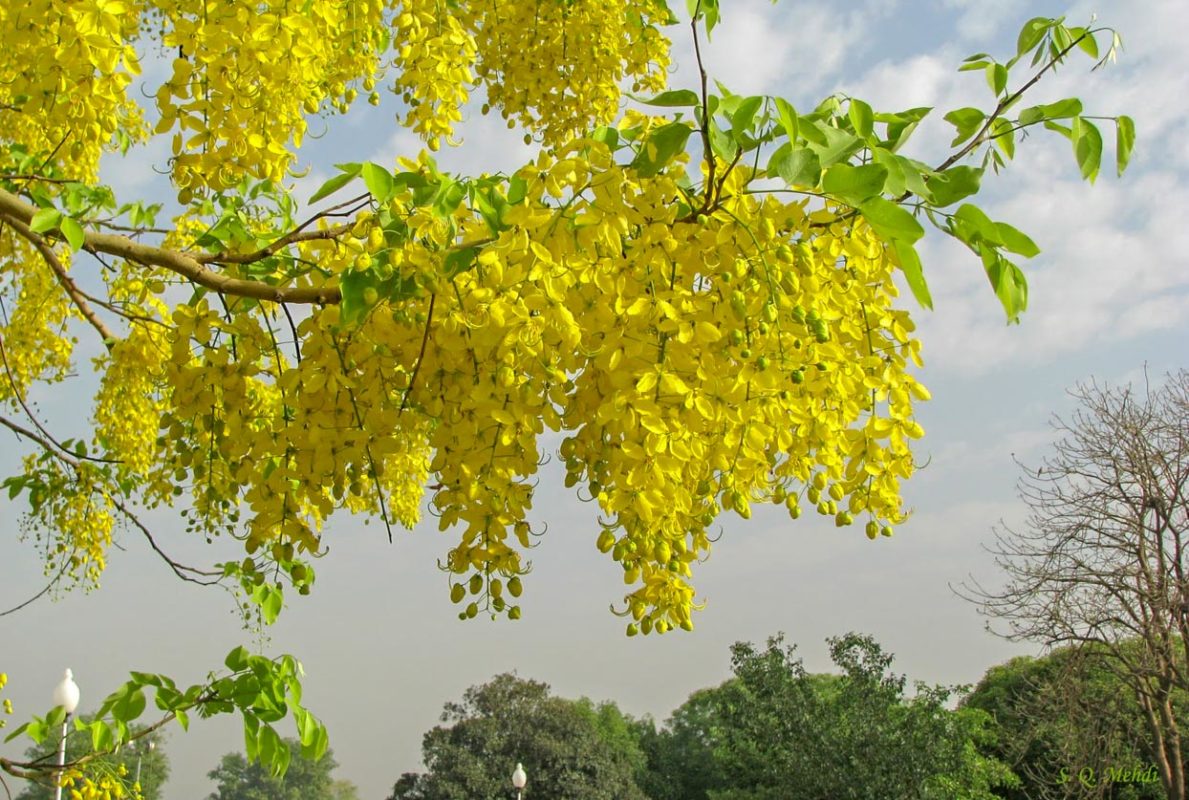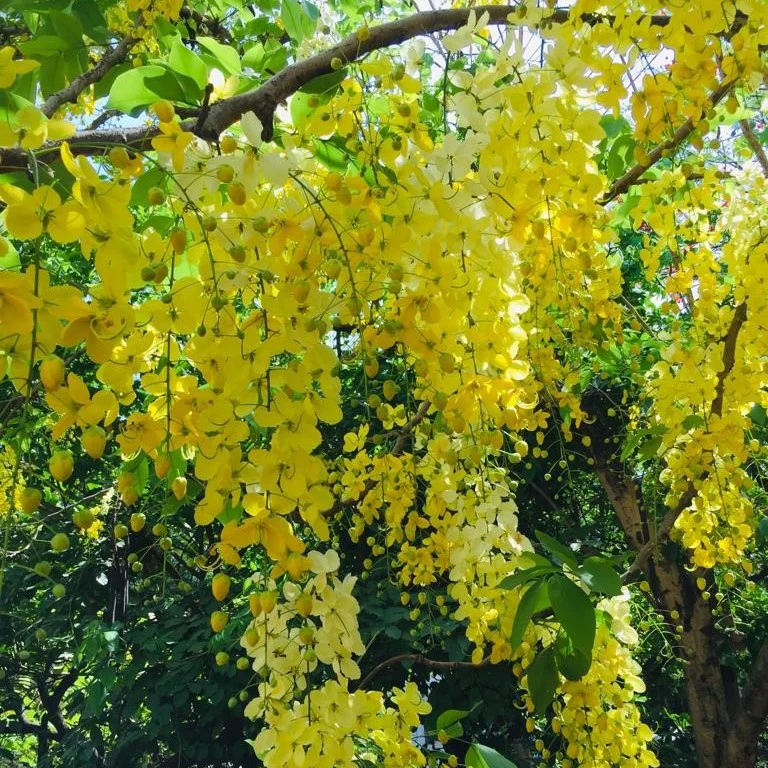Cassia fistula L.
• Scientific Name: Cassia fistula
• Family: Caesalpinoideae
• Genus: Cassia
• Species: fistula
Common and Regional Names:
• Common Name: Golden Shower Tree, Indian Laburnum
• Malayalam: Kanikkonna (കണിക്കൊന്ന),
• Tamil: Konnai (கொன்னை), Kadamba (கடம்ப)
• Hindi: Amaltas (अमलतास)
• English: Golden Shower Tree, Indian Laburnum
Description:
Cassia fistula is a medium-sized, deciduous tree that can grow up to 10–20 meters in height. It is known for its striking, bright yellow flowers that grow in long, pendulous clusters, which bloom in the summer. The tree’s flowers are followed by long, cylindrical pods containing numerous seeds. The leaves are compound, with 5–7 leaflets, and the bark is smooth, greyish-brown in color. The tree is native to the Indian subcontinent but is also found in tropical regions of Southeast Asia, Africa, and the Middle East.
Uses and Medicinal Importance:
Cassia fistula has various medicinal and practical uses. It is valued for its medicinal properties, ornamental beauty, and utility in traditional practices. The tree, particularly its flowers, bark, leaves, and pods, are used in several cultural and medicinal contexts.
1. Medicinal Uses:
• Laxative:
o The most common use of Cassia fistula is as a natural laxative. The pulp of the pods is rich in anthraquinone glycosides, which have a mild purgative effect. It is commonly used in Ayurvedic medicine to treat constipation and to cleanse the digestive system.
• Detoxification and Blood Purification:
o The plant is believed to have blood-purifying properties. It is often used in traditional medicine to detoxify the body, reduce fever, and treat skin diseases like acne, boils, and eczema.
• Digestive Disorders:
o Apart from its laxative properties, the pulp of Cassia fistula is used to treat indigestion, bloating, and upset stomach. It is also used to treat liver ailments and jaundice.
• Anti-inflammatory and Pain Relief:
o The leaves and flowers of the plant are used in poultices to treat inflammatory conditions like arthritis. It also has analgesic properties, which help in reducing pain, especially in joint and muscle-related issues.
• Antioxidant:
o The plant contains several compounds with antioxidant properties, which help to neutralize free radicals in the body, potentially lowering the risk of chronic diseases such as heart disease and cancer.
• Skin Health:
o The flower extract is used in treating skin disorders such as wounds, cuts, and ulcers. It has antimicrobial properties that help to prevent infections and promote healing.
• Cough and Respiratory Issues:
o The bark of the tree is used in traditional remedies to treat respiratory conditions like cough, bronchitis, and asthma. It has a soothing effect on the throat and can help reduce inflammation in the airways.
• Eye Health:
o In traditional medicine, Cassia fistula has been used to treat eye infections and improve vision. The paste of its leaves or bark is applied to the eyes to alleviate conjunctivitis and other eye irritations.


